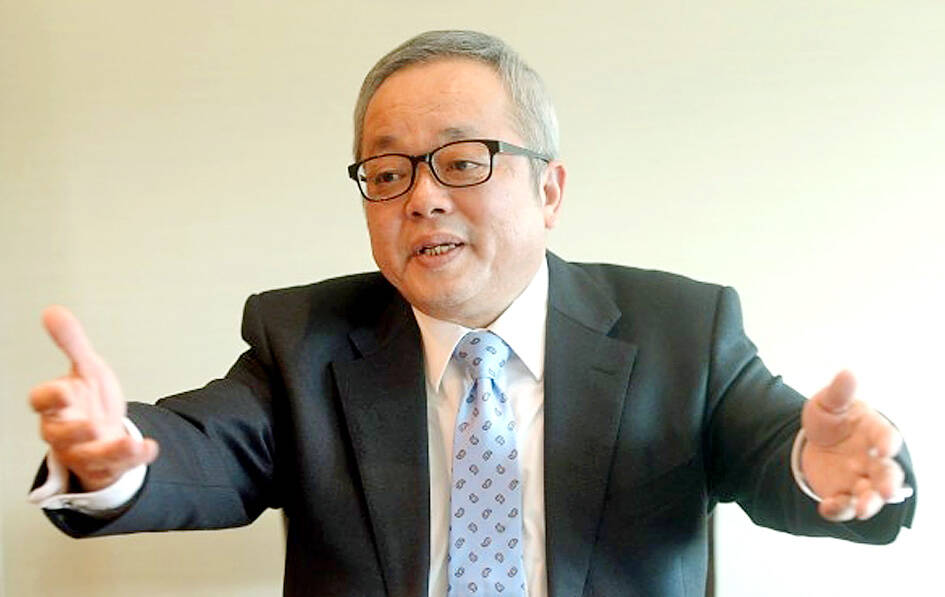State-run Taiwan Asset Management Corp (TAMC, 台灣金聯) yesterday said it would be more proactive in taking part in urban renewal projects and press ahead with reselling foreclosed properties at fair prices.
Shih Jun-ji (施俊吉), chairman of the nation’s largest bad-loan operator, said TAMC is seeking to deepen participation in urban renewal projects to boost projects on hand and generate profits on a yearly basis.
Urban renewal projects — intended to enhance building safety and stimulate domestic demand — are not subject to selective credit controls to curb property speculation.

Photo: Taipei Times file photo
Housing property price hikes have stabilized following a spate of selective credit controls and unfavorable tax terms, Shih said.
“Taiwan’s house price hikes are relatively moderate, compared with markets elsewhere,” Shih said on the sidelines of a public function, adding that the government has played an important role in stabilizing the market.
The Taipei-based company will continue to pursue reasonable profitability by selling properties it has acquired from the foreclosed market, Shih said.
Selling properties a fair rates has been an effective strategy for more than a decade and will remain a core business at TAMC, Shih said.
For this year, TAMC is to offer two batches of fair housing units, Shih said.
The first batch is to cover 80 apartment units priced from NT$8.9 million to NT$42 million (US$288,306 and US$1.36 million) in Taipei’s Xinsheng N Road and New Taipei City’s Linkou District (林口), he said.
TAMC will introduce the second batch and disclose more details after sales of the first batch are settled, Shih said.
The firm will follow its usual practice of offering about 100 houses in different parts of Taiwan at prices that are 10 percent lower than market rates, he said.
Shih said the US dollar appears to be the only financial asset that has gained value this year.
As long as this trend continues, foreign funds would not demonstrate much interest in local shares after cutting their holdings by more than NT$1 trillion so far this year, he said.
The US Federal Reserve has made clear its intention to fight inflation and raise policy rates sharply to achieve that aim, raising the chances of a hard landing in the US, which would be unfavorable for Taiwan’s exports, Shih said.
However, major local tech firms would emerge relatively unscathed given their global leadership and the world’s dependence on advanced technologies, he said.

UNCERTAINTY: Innolux activated a stringent supply chain management mechanism, as it did during the COVID-19 pandemic, to ensure optimal inventory levels for customers Flat-panel display makers AUO Corp (友達) and Innolux Corp (群創) yesterday said that about 12 to 20 percent of their display business is at risk of potential US tariffs and that they would relocate production or shipment destinations to mitigate the levies’ effects. US tariffs would have a direct impact of US$200 million on AUO’s revenue, company chairman Paul Peng (彭雙浪) told reporters on the sidelines of the Touch Taiwan trade show in Taipei yesterday. That would make up about 12 percent of the company’s overall revenue. To cope with the tariff uncertainty, AUO plans to allocate its production to manufacturing facilities in

Taiwan will prioritize the development of silicon photonics by taking advantage of its strength in the semiconductor industry to build another shield to protect the local economy, National Development Council (NDC) Minister Paul Liu (劉鏡清) said yesterday. Speaking at a meeting of the legislature’s Economics Committee, Liu said Taiwan already has the artificial intelligence (AI) industry as a shield, after the semiconductor industry, to safeguard the country, and is looking at new unique fields to build more economic shields. While Taiwan will further strengthen its existing shields, over the longer term, the country is determined to focus on such potential segments as

COLLABORATION: Given Taiwan’s key position in global supply chains, the US firm is discussing strategies with local partners and clients to deal with global uncertainties Advanced Micro Devices Inc (AMD) yesterday said it is meeting with local ecosystem partners, including Taiwan Semiconductor Manufacturing Co (TSMC, 台積電), to discuss strategies, including long-term manufacturing, to navigate uncertainties such as US tariffs, as Taiwan occupies an important position in global supply chains. AMD chief executive officer Lisa Su (蘇姿丰) told reporters that Taiwan is an important part of the chip designer’s ecosystem and she is discussing with partners and customers in Taiwan to forge strong collaborations on different areas during this critical period. AMD has just become the first artificial-intelligence (AI) server chip customer of TSMC to utilize its advanced

While China’s leaders use their economic and political might to fight US President Donald Trump’s trade war “to the end,” its army of social media soldiers are embarking on a more humorous campaign online. Trump’s tariff blitz has seen Washington and Beijing impose eye-watering duties on imports from the other, fanning a standoff between the economic superpowers that has sparked global recession fears and sent markets into a tailspin. Trump says his policy is a response to years of being “ripped off” by other countries and aims to bring manufacturing to the US, forcing companies to employ US workers. However, China’s online warriors